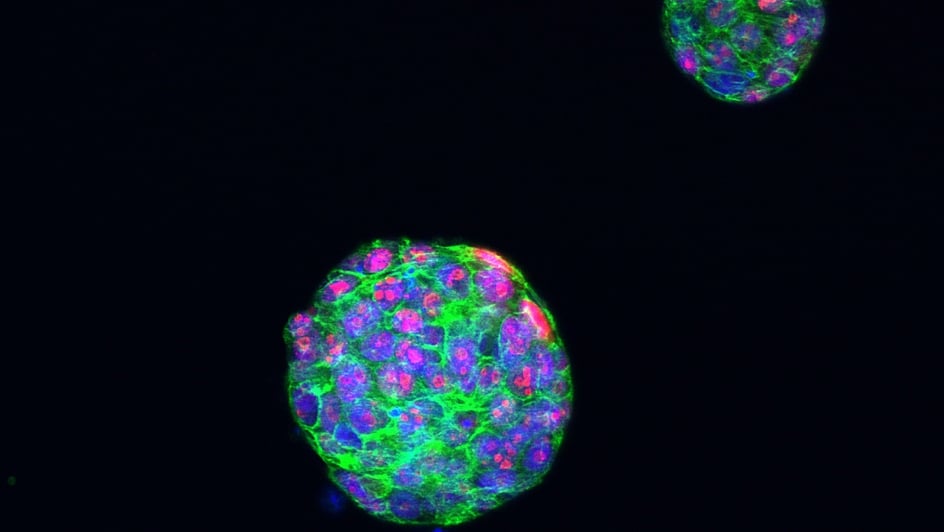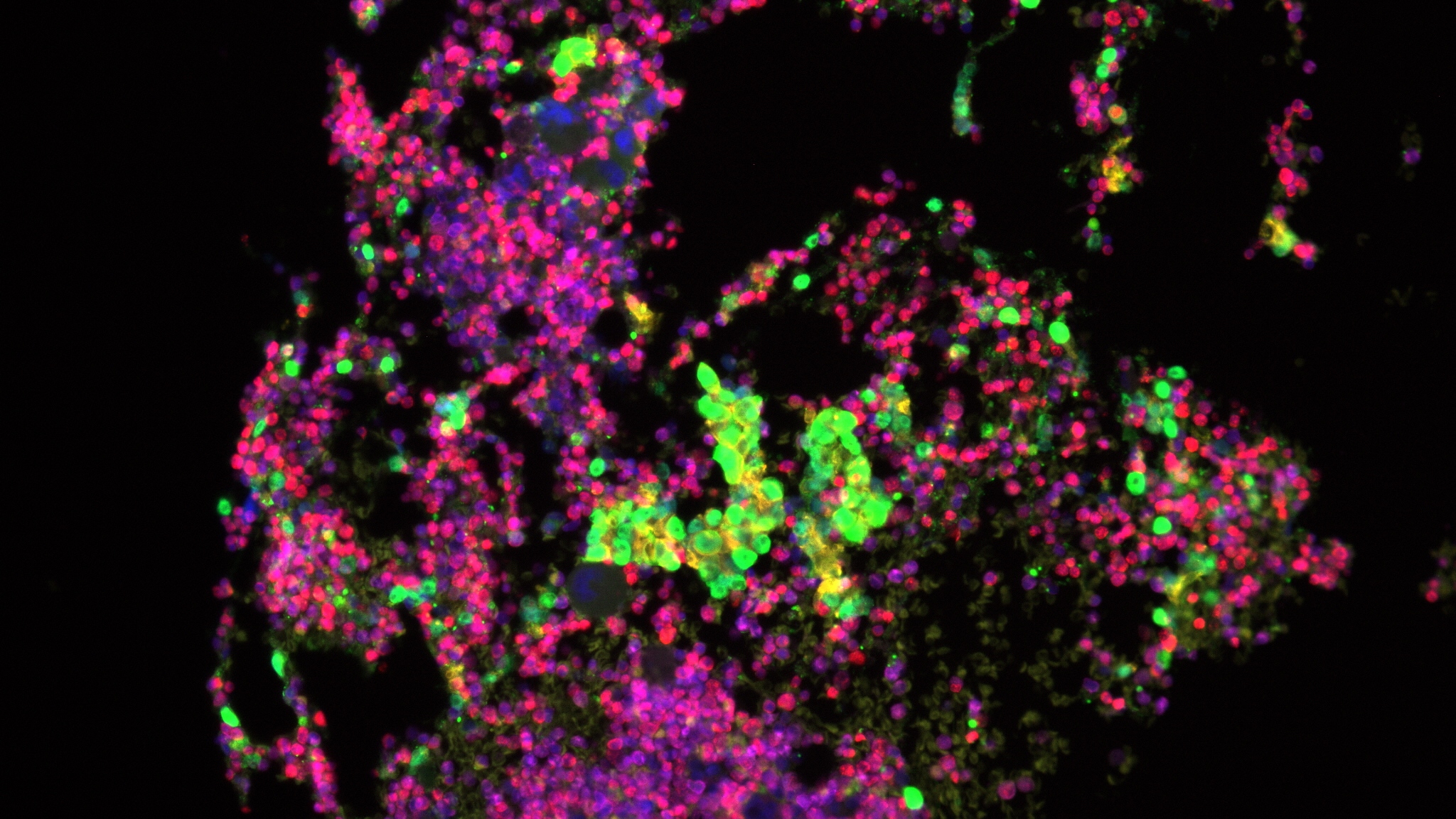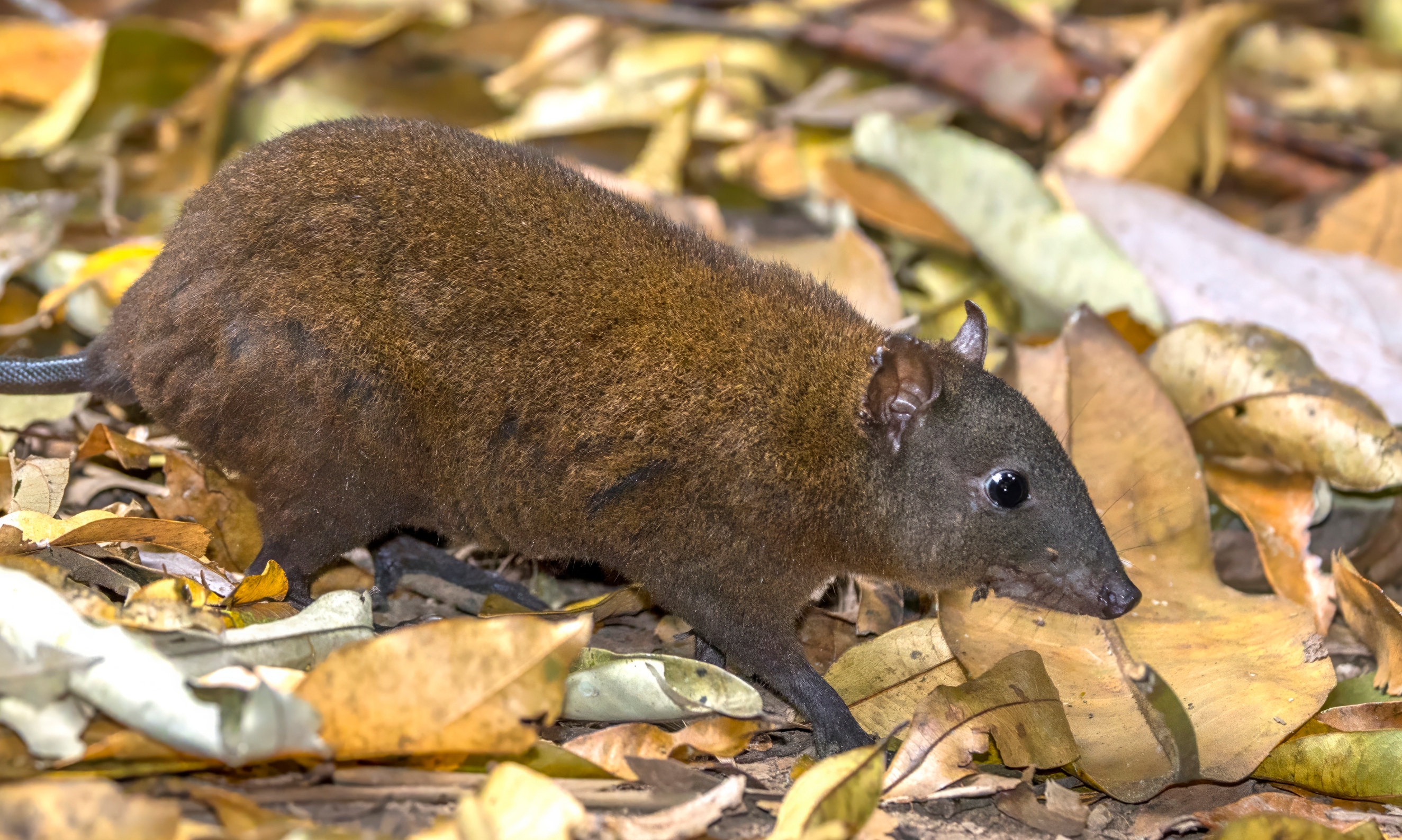PhD and MD(Res) for clinicians
Our academic clinicians form a vital link in our translational research, bringing knowledge of clinical practice into the laboratory and taking the knowledge of laboratory research back into the clinic and using it to help cancer patients.
What it's like to study at the ICR
In this video PhD students and clinical research fellows talk about their experiences of studying at the Institute of Cancer Research. The ICR has two sites – one in Sutton and one in Chelsea. This video footage mostly shows our Sutton site.
.jpg?sfvrsn=ab3cc526_1)
Which degree should I choose?
There are two options available for clinicians who wish to pursue further qualifications in medicine:
- Doctor of Philosophy - PhD
- Doctor of Medicine (Research) - MD(Res)
- You will receive expert supervision from the ICR’s top-class Faculty and participate in the highly successful translational research culture of the ICR and The Royal Marsden NHS Foundation Trust;
- It is expected that you will make a substantial contribution to knowledge in your clinical area through hypothesis-driven original research, normally leading to published work;
- You are required to submit a thesis (a written report) and pass a viva (oral exam) at the end of your course.
Both degrees are aligned at Level 8 of the framework for higher education qualifications in England, Wales and Northern Ireland (FHEQ).
- A PhD is often lab-based and a fellowship will typically last three years;
- An MD(Res) lasts a minimum of two years (or part-time equivalent) and combines a student's research with clinical practice. The expectation is that the MD(Res) thesis is submitted within three years.
Also, consider your career ambitions. The following are general guidelines and not a definitive distinction. The final choice will depend on your individual circumstances and the project itself.
- If you’re looking to take your career into a laboratory research-based direction, then you may wish to study on a PhD programme. These three-year fellowships are intended to develop the applicant’s potential to pursue a career as an academic clinician.
- If you’re looking to progress your career in a clinical role, using your specialist knowledge to diagnose and interact with patients, then an MD(Res) may be the best option for you. These research programmes provide clinical specialists the opportunity to work in a unique multidisciplinary environment alongside world leaders in cancer research and clinicians from The Royal Marsden
There are two main routes to applying. Firstly we have a number of clinical PhD fellowships through our ICR and Imperial Clinical Academic Training Partnership, funded by Cancer Research UK. These prestigious fellowships aim to support the training of future clinical academic leaders in cancer research. Other PhD opportunities for clinicians will be advertised on our funding options for clinical research fellowships page.
Applying for our clinical training programmes
This year, we are delighted to be advertising our highly competitive clinical PhD fellowships, funded by the Cancer Research UK Clinical Academic Training Programme at the ICR and Imperial.
Successful candidates will register for a PhD in Autumn 2025, and will be based at either the ICR or Imperial.
The fellowships will be awarded through a competitive application process. You can follow the link below to see the projects that we have available:
Application guidelines for the CRUK Clinical Academic Training Programme
You should submit the following to [email protected]:
- an Initial Contact Form;
- an Equal Opportunities Form;
- a Project Preference Form; and
- a CV.
You will then be sent additional project information.
Once we receive your Project Preference Form, we will share your details with supervisors, who will be able to contact you to arrange an introductory meeting.
General PhD and MD(Res) applications
Before applying for a research degree outside of our advertised, funded programmes, candidates and their supervisors should discuss whether the project is appropriate for a PhD or and MD(Res), and if the candidate has a preference for either programme.
Funding
Full-funding for the duration of the research degree must be available. The durations are:
- two years for an MD(Res); and
- three years for a PhD.
These durations will be pro-rata'd for part-time students.
- An application form;
- A protocol outline, which should be discussed this with your potential supervisor and approved by their Head of Division; and
- A supervisor form.
You must also send us the following documentation:
- written confirmation that full funding is in place for the minimum duration, from the relevant ICR Head of Division, or Royal Marsden Hospital Department Head;
- copies of certificates of academic qualifications;
- evidence of ethical approval for the project, if required;
- copy of passport, visa, or national ID card (EU only); and
- evidence of proficiency in English e.g. TOEFL/IELTS scores, if required.
Funding options for clinical research degrees
If you can’t find a PhD fellowship for a research project that interests you, or you have your own funding, the best way to find a PhD project is speak to colleagues, attend talks and seminars, and network widely to find potential opportunities and teams to work with and then to approach potential supervisors directly.
See our Division webpages for a summary of the research interests of our research teams:
- Breast Cancer Research
- Cancer Biology
- Cancer Therapeutics
- Clinical Studies
- Genetics and Epidemiology
- Molecular Pathology
- Radiotherapy and Imaging
- Structural Biology
Similarly, to apply for an MD(Res), you will need to approach a potential supervisor and agree on a research topic and protocol outline. See entry requirements and how to apply for more information about the application process. Also see our student profiles to give you an idea of some of the research projects our students are currently working on.
Entry requirements
Admissions to all ICR research degree programmes are governed by the ICR Admissions Policy and Procedure and the Appeals and Complaints Procedure for Applicants, which can be found on our Student resources page.
To be eligible for registration for the degree of MPhil/PhD or MD(Res), you must have:
- obtained the MBBS degrees of the University of London or some other registrable primary qualification in Medicine, and be eligible for full registration or hold limited registration with the General Medical Council;
or
- obtained the BDS degree of the University of London and/or be eligible for registration with the General Dental Council.
And you must have:
- clinical experience relevant to the post.
Also it is desirable for you to have:
- research experience relevant to the post.
You can also register for a PhD or MD(Res) outside of this process as long as you have funding which covers the duration of the programme, meet the entry requirements and successfully complete the pre-registraton process. More detail can be found under How to apply.
Latest ICR News

Overuse of CT scans could cause 100,000 extra cancers in US

ICR welcomes NICE recommendation of capivasertib for advanced breast cancer

Simple spit test could finally turn the tide on prostate cancer
